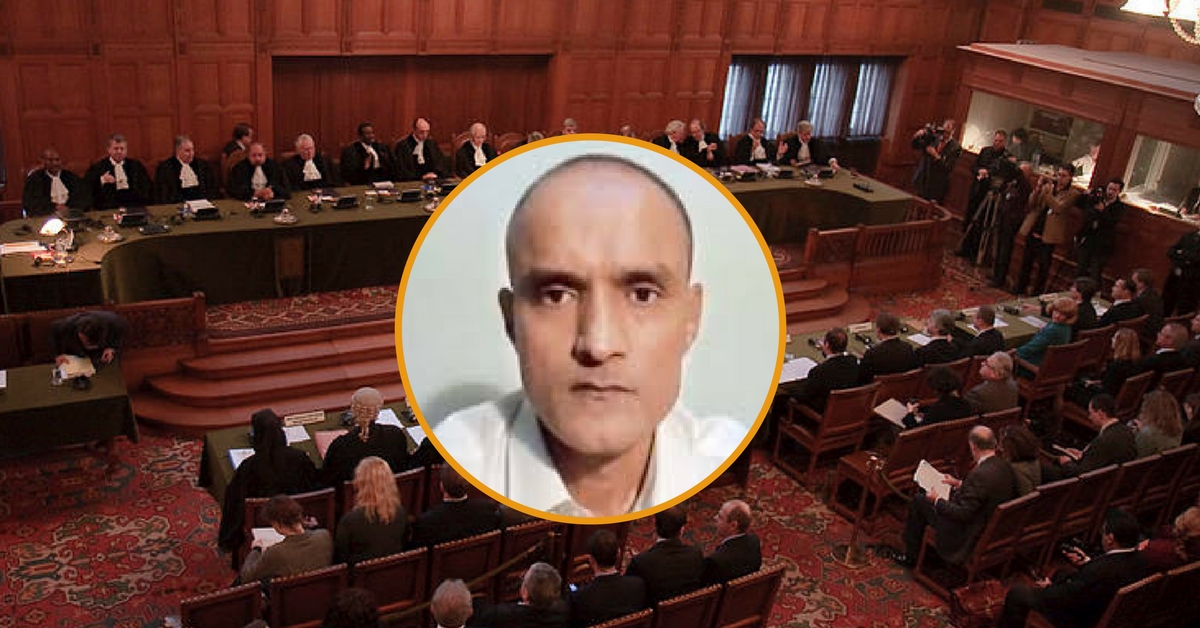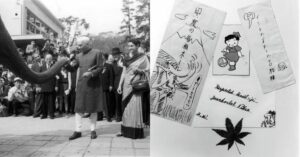The Curious Case of Kulbhushan Jadhav. And Other Cases ICJ Has Heard Between India & Pakistan
A former Navy officer, Kulbhushan Jadhav is in the eye of the storm

Fuelled by history, India and Pakistan have always had a testy relationship. The Kulbhushan Jadhav case is only the most recent issue festering between the hostile neighbours.
Kulbhushan Jadhav, a former Indian Navy officer, was arrested on March 3, 2016, from the border town of Chaman in Baluchistan on the charges of espionage. As per reports, Kulbhushan was born in Maharastra, joined the National Defence Academy in 1987 and was assigned to the engineering branch of the Navy in 1991.
According to reports, after seeking premature retirement from the Indian Navy, he started his own business in Mumbai and travelled often on work.

Here is a short timeline of the events that have transpired over the last year.
On March 3, 2016, Kulbhushan was arrested on charges of terrorism and sabotage by Pakistan on the Iran border. India alleged that he was abducted from within Iran.
On March 24, 2016, Pakistan army alleged that Kulbhushan is an Indian spy working with the RAW.
On March 26, 2016, the Indian High Commissioner is summoned and Pakistan issues a statement that Kulbhushan is a RAW agent involved in subversive activities in Balochistan and Karachi.
India responds saying, Kulbhusan had no ties to the Indian government after he retired from the Navy in 2002.
Pakistan denied India consular access, meaning the ability of citizens of a country to have access, physical or via communication, with the consular officials of their own country while being in a foreign country. Under the Vienna Convention, the Indian embassy or consulate must be notified of the arrest and Indian consular officers given access to Kulbhushan.
On March 29, 2016, Pakistan released a confession video of Kulbhushan saying that he is an Indian Navy officer and an operative of RAW. India questions this video and alleges that the confession seems coerced.
In April 2016, the Balochistan Counter Terrorism Department (CTD) filed a First Information Report (FIR) against Kulbhushan under various sections of Anti-Terrorism Act.
On December 7, 2016, Sartaj Aziz, Pakistan Prime Minister Nawaz Shariff’s advisor on Foreign Affairs, said, “The dossier on Indian spy Kulbhushan Jadhav contained mere statements. It did not have any conclusive evidence.”
Subsequently Pakistan said that the statement ‘attributed’ to Sartaz Aziz was absolutely incorrect.
On December 31 2016, Pakistan claimed that it would hand over a dossier on Kulbhushan to the UN Secretary General Antonio Guterres.
On March 3, 2017, Sartaj Aziz changes his earlier statement and affirms to the Pakistan Senate that Kulbhushan will not be extradited to India under any circumstance.
In a strongly worded statement, India asks Pakistan to follow established international policies while dealing with foreign nationals in its custody.
April 10, 2017, in a surprise of sorts, Pakistan’s military establishment announces that Kulbhushan will be hanged. This came after the Pakistan military court found him guilty of ‘espionage and sabotage’.
India strongly condemns this announcement and sends an official communication to Pakistan’s High Commissioner Abdul Bisht stating that Kulbhushan was kidnapped from Iran and his trial was ‘farcical’ in the absence of any evidence against him.
On May 8, 2017, India moved a petition before the International Court of Justice (ICJ) to seek justice for Kulbhushan .
On May 10, 2017, after India sent its official communication to Pakistan, the ICJ reportedly asked Pakistan not to act upon the execution orders.
ICJ announced that it would hear arguments from India and Pakistan on the Kulbhushan execution on May 15.
On May 15 2017, at the public hearing, Senior Advocate Harish Salve expressed India’s fear that Pakistan would execute Kulbhushan even before the ICJ pronounced its order and demanded an immediate suspension of the death sentence.
Senior Advocate Harish Salve reiterated that if the execution were to take place during the hearing of the case then it would be violation of the Vienna Convention. Pakistan in reply, continuing to deny India consular access, said that such courtesies were not to be extended for ‘spies’ involved in subversive activities.
On May 18, 2017, the ICJ stays the death sentence given to Kulbhushan by the Pakistan military until further notice. “Pakistan shall take all measures at its disposal to ensure Kulbhushan Jadhav is not executed pending final decision by the court,” said Judge Ronny Abraham of France, ICJ’s President.
What is the International Court of Justice?
The International Court of Justice (ICJ), came into existence in 1946 when it replaced the Permanent Court of International Justice. The principal judicial organ of United Nations, ICJ comprises 15 judges elected to 9-year terms who act as independent magistrates.
Justice Dalveer Bhandari from India is currently serving as an ICJ judge.

Photo Source: Wikimedia Commons
This is not the first time that a case between India and Pakistan is being heard by the ICJ. There have been previous instances as well.
The first time was in 1971. Pakistan raised a complaint to the International Civil Aviation Organisation claiming that India had breached the International Civil Aviation Convention and International Air Services Transit Agreement. To this, India said that the organisation’s council had no jurisdiction to decide upon Pakistan’s complaint. The Court held by 14 votes to 2 that the council indeed have jurisdiction to entertain the complaint.
However, in 1976 both countries dropped the matter after the formation of Bangladesh, as Pakistan did not require flight rights over Indian territories any longer.
In 1973, Pakistan brought another case to ICJ alleging that India’s proposed transfer of 195 Pakistani Prisoners of War held by India to Bangladesh for war crime trials was illegal. ICJ never had an opportunity to pass any orders since the case was withdrawn when both two countries signed the New Delhi Agreement in 1973.
A third case is referred to as the Atlantique Incident. On September 21 1999, Pakistan filed an application before the ICJ initiating proceedings against India in respect to a matter pertaining to the destruction of a Pakistani aircraft. Represented by then Attorney General of India, Soli Sorabjee, after extensive arguments put forth by both nations, the court held by 14 votes to 2 that it had no jurisdiction to entertain the application filed by Pakistan.
India now awaits a favourable verdict in the Kulbhushan case from the ICJ.
Like this story? Or have something to share? Write to us: [email protected], or connect with us on Facebook and Twitter.
NEW: Click here to get positive news on WhatsApp!
This story made me
-
97
-
121
-
89
-
167
Tell Us More
If you found our story insightful, informative, or even just enjoyable, we invite you to consider making a voluntary payment to support the work we do at The Better India. Your contribution helps us continue producing quality content that educates, inspires, and drives positive change.
Choose one of the payment options below for your contribution-
By paying for the stories you value, you directly contribute to sustaining our efforts focused on making a difference in the world. Together, let's ensure that impactful stories continue to be told and shared, enriching lives and communities alike.
Thank you for your support. Here are some frequently asked questions you might find helpful to know why you are contributing?



















